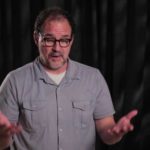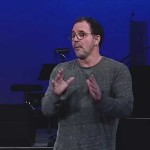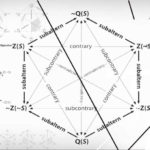We run our website the way we wished the whole internet worked: we provide high quality original content with no ads. We are funded solely by your direct support. Please consider supporting this project.

Your Prayers Matter
My conviction is that many Christians do not pray as passionately as they could because they don’t see how it could make any significant difference. They pray, but they often do so out of sheer obligation and without the sense of urgency that Scripture consistently attaches to prayer.
The problem, I believe, is that many Christians have an understanding of divine sovereignty in which the urgency of prayer simply doesn’t make much sense. They believe that God’s plans cannot truly be changed; the future is exhaustively settled. They interpret the cliché “God is in control” to mean that “God controls everything.” So the obvious question is, what real difference could prayer possibly make?
The common saying that “prayer changes us, not God” simply doesn’t reflect the purpose or the urgency that Scripture gives to petitionary prayer.
Because the future is not entirely settled and God’s plans can change, the open view of the future is able to render the purpose and urgency of prayer intelligible in a way that neither classical Arminianism nor classical Calvinism can. The open view is able to declare, without qualification or inconsistency, that some of the future genuinely depends upon prayer. On a practical level, this translates into people who are more inclined to pray with passion and urgency.
God’s goal of creation is the participation of humans in the loving triune relationship that God is throughout eternity. This required a creation that consisted of personal, morally responsible, free agents. He thus ordained that we have “say-so” in how things transpire. He doesn’t want to relate to robots; he wants to interact with real persons. There can be no authentic personhood without some element of say-so, some degree of self-determination, some authentic power to influence things.
Because God wants us to be empowered, because he desires for us to communicate with him, and because he wants us to learn dependency on him, he graciously grants us the ability to significantly affect him. He enlists our input, not because he needs it, but because he desires to have an authentic, dynamic relationship with us as real empowered persons.
The open view teaches that God sovereignly ordained that prayer be one of our central means of influencing what transpires in history. It is our means of influencing God’s decisions about the future. The Lord does not play with words when he teaches and illustrates throughout Scripture that much of what will happen in the future depends upon prayer: “If my people … humble themselves [and] pray … then will I hear from heaven … and heal their land” (2 Chron 7:14).
Think of it this way: Before creation, God possessed 100 percent of all power and thereby all the say-so. When the Triune God decided to express love by bringing forth a creation, each creature was invested with a part of that say-so. The say-so of the triune God was at the point of creation no longer the only one who determined how things would go.
Human say-so is designed to be spent on both the physical and spiritual realm. We can choose to either work with or against God in terms of how we live and affect other people physically. We can also choose to work either for or against God spiritually by “cashing in” on our say-so through prayer.
We are morally responsible for how we use or don’t use both. Aspects of the future truly depend on us.
—adapted from God of the Possible, pages 95-98
Photo credit: sheilaz413 via Visual Hunt / CC BY-NC-ND
Category: General
Tags: Free Will, Open Theism, Prayer
Related Reading

If God is already doing the most he can do, how does prayer increase his influence?
Question: If God always does the most that he can in every tragic situation, as you claim in Satan and the Problem of Evil, how can you believe that prayer increases his influence, as you also claim? It seems if you grant that prayer increases God’s influence, you have to deny God was previously doing…

The Cosmic Dance: Why Will This Book Benefit Me?
Greg took a few moments to describe how he hopes you’ll benefit from The Cosmic Dance. Discover how various branches of science demonstrate that life itself is a delicate dance between order and chaos. You’ll find that we’re wired to live on the edge in a place of creativity, spontaneity and significance in the adventure…

Evil, St. Augustine, & the “Secret” Higher Harmony
The problem of evil constitutes the single most difficult challenge to Christian theism. Volumes upon volumes have been written with the express purpose of rationally reconciling the belief in an all-good and all-powerful God with the reality that life is frequently an inescapable nightmare. Indeed, it is not overstating the case to claim that no…

In Darkest Times, God is Present
“However much evil was there, it would have been far worse if God was not there pushing back on it.” There is never a time when God is not present, no matter how bad the situation. In this short sermon clip, Greg Boyd talks about how we need to be watchful of the spirit world…

What Is The Warfare Worldview?
Greg has written extensively on something he calls the Warfare Worldview. Many today believe that everything that takes place in the world is ultimately part of a divine blueprint and contributes in some way to the glory of God. As opposed to this view, Greg argues that wills other than God’s are responsible for evil…

The Logical Hexagon Made Simple
by: Greg Boyd The Hexagaon in a Nutshell For those of you who don’t have the twenty to thirty minutes it will probably take to read this essay but who nevertheless would like to have some idea of what the Logical Hexagon is all about, here is my two sentence elevator speech: The Logical Hexagon…
